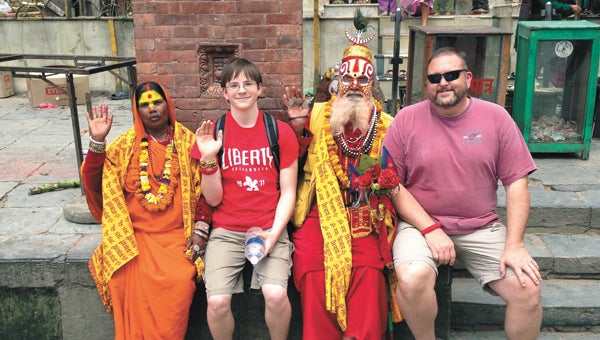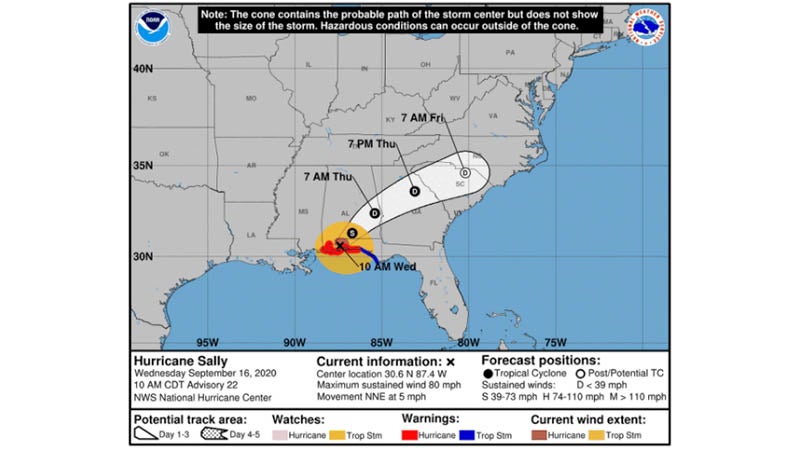Understanding Nepal
Published 12:06 am Thursday, April 30, 2015
Father, son spent time in Nepal days before disaster
Chris Jackson and his son Jake have seen first-hand how little most residents of Nepal have.
The pair recently traveled there with World Vision Australia for a dual-purpose trip. Another Australian organization, Fathering Adventures, teamed up with World Vision Australia, for a two-week trip that included an immersion experience, as well as pure adventure.
The Jacksons flew from Philadelphia to Doha to Katmandu, Nepal, where they were given about a day-and-a-half to get acclimated. There, they joined an Australian father-son pair for what they dubbed the “Amazing Race Through Katmandu.”
“We saw all of the historical places that are now lost,” Chris said, referring to the 7.8 earthquake that struck Nepal this past weekend.
That day, the four emerged from a taxi and got a surprise experience to which they would become accustomed during their stay.
“A guy came up, red dotted us, and basically covered us in flower petals,” Jake said.
The Jacksons would learn that they were experiencing a traditional Nepalese blessing. In the city, when someone randomly blesses you, he expects to be paid for the service.
“He kept following us for more money,” Jake said.
But in the rural areas they visited, they were greeted similarly in each village as a sign of hospitality.
In the frenetic city, they saw the historic Durbar Square, and the Monkey Temple, built between 400 and 600 AD. Both sustained significant damages last weekend. The monkeys are considered holy by believers.
From Katmandu, the group flew to Dhangadhi.
“We took a wild ride in some taxis,” Jake explained. “They kept having random stops so they could buy stuff.”
The driver stopped for lunch, at a random produce stand, and in other places. He delivered the visitors to a rustic hotel where they spent two nights.
From Dhangadhi, there were two excursions. On the first, the Jacksons and a translator walked down a mountain trail and spent a day with a Nepalese family.
“They had three children,” Chris said. “The oldest daughter was a sponsored child with World Vision. Jake got to hoe in their garden and helped them pick greens.”
Communication was hard.
“I did a lot of charades,” Jake said.
The family’s quarters were primitive by American standards – with dirt floors, and one electrical wire that was used to power one light bulb, and charge the family’s phone. Their average income is $100 to $150 per year.
“They were very happy people,” Chris said.
The second excursion was quite an experience.
“We knew early-on in the trip, the government there is very disorganized,” Chris said. “There are two parties that can’t get along. When they strike, everything shuts down.”
Because tourism is an important part of the economy, hotel employees are allowed to work, as are employees of restaurants located inside of hotels. Others – including taxi drivers – are not allowed to work.
It was under these circumstances that the group set out to visit a school, which also was shut down because of the strike. Organizers lined up rickshaws to carry members of the group six or seven miles to the school.
Everyone in this village had been a slave prior to 2001, Jackson said. The residents are extremely poor, and live on land that floods each year.
“Unlike the family we stayed with, these kids were not shy,” Chris said. “They were a lot poorer here.”
The visitors played a game of soccer against a village team. World Vision had had jerseys made for each of the teams, but many residents of the village played without shoes. They still won.
“The whole village came out to watch,” Chris said.
The “strike” is not in effect after 5 p.m., so teachers soon showed up. The visitors and students went into tiny classrooms, where they shared gifts and talked about Australia and the United States.
“Jake showed them he could touch his nose with his tongue,” Chris said. “He was a movie star.”
The group also visited a cooperative where women of the village had been trained by World Vision to pool money to create a credit union. There, they have loaned money for small items – a sewing machine needed to start a business, money for a butcher shop, or a mechanic shop.
And here and there, they saw more evidence of the modern world.
“You’d see like the mud huts, and then there would be one with a satellite dish on top of it,” Jake said.
After flying back to Katmandu, they visited Beauty for Ashes, where a group of women who have been rescued from the sex trade make jewelry and scarves to sell.
From there, they drove to the Indian border, and then enjoyed the adventure portion of the trip, near the Himalayas. White water rafting, repelling, and other father-son adventures ruled the day.
Although they enjoyed all of their trip, both agreed that they most liked visiting the family.
The trip changed him, Jake said, in that he now feels differently “about having so much. We don’t need all that stuff.”
Chris said the trip gave him a greater appreciation for what we have, including many things we don’t think about – like a stable government.
“That, and hot water,” he said. “We are so blessed, and we don’t have to scratch just to survive.
Chris – who earns his living in insurance also said he was struck by the fact that there are no safety nets there.
“We met a guy who drove a rickshaw. He had a rickshaw wreck, hurt his arm, and couldn’t drive. There is no safety net. When something like this happens, unless faith-based groups and non-government organizations step in to help, they are in real trouble.
“What we’re hearing about there now – they’re in real trouble.”





